California Bans ‘Reusable’ Plastic Grocery Bags, Sues Exxon for Alleged Decades of Deception About Plastic Recycling
State Leads the Charge in War Against Plastic at Grocery Stores and in Courtroom as Santa Barbara Continues to Battle on Homefront

An X-ray of the world would reveal plastic in nearly every corner. Brightly colored litter is even found in our bodies; humans consume a considerable amount of microplastics each week — usually not enough to equal a credit card, as often claimed, but still enough to be detected in human lung tissue and linked to cardiovascular risks.
While it may be too late to fully reverse the world’s rampant plastic pollution, it is not too late to reduce it and pursue reparations. California is leading the charge in the war against plastic with new battlefronts at grocery stores and in the courtroom.
Checking Out
Governor Gavin Newsom just signed SB 1053, from Sen. Catherine Blakespear (D-Encinitas), into law, which will eliminate plastic bags at California grocery store checkout lanes.
Those heavy-duty, supposedly “reusable” plastic bags — a product of a loophole in the state’s first 2016 ban against single-use plastic bags — will be a thing of the past come January 2026.
After that, no more “paper or plastic.” The only options for hauling your groceries will be recyclable paper bags or certified reusable bags.
As for Santa Barbara’s plastic-bag stock and stake in the matter, it is unclear. Plastic bags do not stay whole when thrown into the trash, so knowing how many are in our landfill is difficult to determine, said the County’s recycling czar Carlyle Johnston.
“I can say that film plastic accounts for 7.07 percent of what is in our trash cans,” he said.
Still, the Santa Barbara County Board of Supervisors endorsed the new bill back in August, and Santa Barbara–based environmental groups, such as the Community Environmental Council (CEC), are “thrilled” with the bill’s passing.
“CEC supported this law, as we have supported and advocated for many state and regional laws that reduce single-use plastic at the source,” said Kathi King, CEC’s director of climate education and leadership.
“With less than 10 percent of plastic getting recycled, it’s clear that we are not going to recycle our way out of the human health, marine health, and litter impacts of plastic and that corporations need to be held accountable.”
Recycling Fallacy
In the courtroom, Attorney General Rob Bonta filed a lawsuit against oil giant ExxonMobil — the world’s largest producer of polymers used to make single-use plastic — for the company’s role in “exacerbating the global plastics pollution crisis.”
Over the course of a “decades-long campaign of deception,” the Department of Justice alleges, Exxon cooked up a plastic-pollution solution. But it was all just a mirage sold by “slick marketing,” the DOJ says.
The public was led to believe that it was a-okay to buy and use as much plastic stuff as they wanted, as long as they recycled it afterward.
In reality, no more than 9 percent of plastic waste in the U.S. has ever been recycled. A lot of it could not be recycled in the first place.
Since at least 1998, Exxon has peddled a false reality designed to mislead consumers that recycling “could and would solve the ever-growing plastic waste crisis,” while knowing that mechanical, or “advanced” recycling — using heat to break down and reuse plastics — will “never be able to process more than a tiny fraction of plastic waste it produces,” the lawsuit states.
Enter: fruit cups. In June, ProPublica challenged Exxon’s claims that it had transformed discarded plastic into new fruit cups through an “advanced” chemical recycling method, and showed just how little recycled content actually winds up in products made that way. However, companies like Exxon inflate that percentage in their marketing — a part of what Bonta calls the company’s “biggest greenwashing campaign.”
In April 2022, Bonta launched his investigation into the role of oil companies in worsening the plastic pollution crisis. That included subpoenaing “never-before-seen” documents allegedly proving ExxonMobil knew about the ineffectiveness of plastic recycling.
During a press conference last Monday, Bonta called plastic recycling “a farce, a lie, a deceit.” He said, “One thing ExxonMobil actually does is recycle its lies.”
The truth is that the infrastructure, market, and technology for recycling the fossil-fuel-based plastic products, especially those of the single-use variety (like plastic bags), are “woefully inadequate” for the amount of plastic Exxon produces, according to court documents.
In 2021, Exxon contributed more “virgin” plastic polymers (a k a the raw, non-recycled stuff) bound for single-use plastic than any other petrochemical company — more than six million tons, or roughly equivalent to two trillion single-use plastic cups in 2021 alone.
In a statement to reporters, an ExxonMobil spokesperson argued that advanced recycling works. “To date, we’ve processed more than 60 million pounds of plastic waste into usable raw materials, keeping it out of landfills,” they said. Instead, the statement blamed California officials for an ineffective state recycling system. “Instead of suing us, they could have worked with us to fix the problem,” the statement said.
In 2022 alone, plastic waste in California amounted to the equivalent of dumping 20 to 30 garbage trucks of plastic waste per day into the state’s landscapes and waterways.
Additionally, the Attorney General’s office says that most of the plastic items collected on the annual California Coastal Cleanup Day can be traced to ExxonMobil’s polymer resins.
And the consequences on the state’s environment, wildlife, and residents seem woefully insurmountable.
California’s brown pelicans, for example, mistake plastic waste for food, filling their stomachs with a salad of garbage and starving them in the process.
Once this rainbow-colored, toxic plastic waste enters the environment, it does not biodegrade.
Instead, court documents say, it is “extremely costly and difficult to eradicate,” especially when it disintegrates into microplastics — those tiny plastic bits measuring five millimeters or less that have been found everywhere, from tidal swells to human guts, lungs, blood, and breast milk.
Meanwhile, the Attorney General alleges, Exxon has been the world’s largest contributor to single-use plastic waste, concealing and misrepresenting the dangers of plastic and the inefficiency of plastics recycling.
And they’ve been incentivized to do so: Exxon reported record profits of $36 billion in 2023 alone.
The state’s lawsuit alleges that ExxonMobil’s decades-long campaign of deception violated state nuisance, natural resources, water pollution, false advertisement, and unfair competition laws.
According to Bonta’s office, the Attorney General seeks to compel Exxon to “end its deceptive practices,” and pay out restitution in the form of an abatement fund, disgorgement, and civil penalties — to potentially fund educational efforts, protection of natural resources, and reuse infrastructure.
It’s a move being applauded by environmental groups around the state, four of which, including the Sierra Club, filed a separate lawsuit against Exxon, similarly accusing it of misleading the public about plastic recyclability.
On the Local Front
For decades, ExxonMobil has been operating in Santa Barbara County’s backyard, and is currently trying to hand over its legacy to its metaphorical progeny — Sable Offshore. But while the fight over oil drilling and formerly ruptured pipelines continues, the region has been taking small steps to sever ties with its oily past and address its plastic waste.
In the last 10 years, the City of Santa Barbara got ahead of the ban-curve by adopting an ordinance to limit the use of single-use plastic bags at certain stores in 2015 and prohibiting the distribution and sale of plastic straws and stirrers in 2019. The city’s creeks division is also partnering with the University of Southern California to research how to intercept microplastic pollution from reaching waterways.

has used since the beginning of the 2024-2025 school year. | Credit: Courtesy
Similarly, in 2023, the City of Goleta enacted strict new regulations in order to go “plastic free,” requiring reusable foodware for on-site dining, prohibiting single-use plastic straws and utensils, and banning polystyrene foodware products and certain balloons.
For countywide action, the Board of Supervisors just adopted the 2030 Climate Action Plan, which includes a focus on reducing non-recyclable and single-use items, chasing a goal to reduce landfilled inorganic waste 35 percent by 2030 and 90 percent by 2045. The county also recently received an Innovation Grant from CalRecycle to add new recycling methods like reverse vending machines, mobile recycling, and bag-drop sites to make cashing in empty (and actually recyclable) beverage containers easier.
And on a smaller scale, kids have been making a difference, too — in April, Kellogg Elementary in Goleta became the first in their school district to ditch the plastic sporks. Shortly after, 5th-graders at Peabody Charter School in Santa Barbara called on their school to follow suit. On September 20, the school held a plastic spork-dumping ceremony, celebrating their breakup with single-use cutlery and the switch to stainless steel alternatives.
Premier Events
Thu, Jan 09
12:30 PM
Santa Barbara
Thursday Lunchtime Meditation Class
Thu, Jan 09
5:30 PM
Santa Barbara
Blueprints of Tomorrow: A Vision Board Party
Thu, Jan 09
6:00 PM
Montecito
Raising Our Light – 1/9 Debris Flow Remembrance
Thu, Jan 09
6:00 PM
Santa Barbara
DIY Journal Workshop
Sat, Jan 11
9:00 AM
Goleta
Coffee & Community at Armitos Park/ Café y comunidad en Armitos Park
Sat, Jan 11
11:30 AM
Santa Barbara
Crafternoon: Sustainable Stagecraft
Sat, Jan 11
3:00 PM
Santa Barbara
Rattlesnake Canyon Walk
Sat, Jan 11
3:00 PM
SANTA BARBARA
Santa Barbara Music Club Free Concert Jan 11, 2025
Sat, Jan 11
6:00 PM
Ojai
An Evening of Cello and Poetry
Sat, Jan 11
7:00 PM
Los Olivos
“In Between” – Tivoli Treloar – Lucy Tucker Yates
Thu, Jan 09 12:30 PM
Santa Barbara
Thursday Lunchtime Meditation Class
Thu, Jan 09 5:30 PM
Santa Barbara
Blueprints of Tomorrow: A Vision Board Party
Thu, Jan 09 6:00 PM
Montecito
Raising Our Light – 1/9 Debris Flow Remembrance
Thu, Jan 09 6:00 PM
Santa Barbara
DIY Journal Workshop
Sat, Jan 11 9:00 AM
Goleta
Coffee & Community at Armitos Park/ Café y comunidad en Armitos Park
Sat, Jan 11 11:30 AM
Santa Barbara
Crafternoon: Sustainable Stagecraft
Sat, Jan 11 3:00 PM
Santa Barbara
Rattlesnake Canyon Walk
Sat, Jan 11 3:00 PM
SANTA BARBARA
Santa Barbara Music Club Free Concert Jan 11, 2025
Sat, Jan 11 6:00 PM
Ojai
An Evening of Cello and Poetry
Sat, Jan 11 7:00 PM
Los Olivos





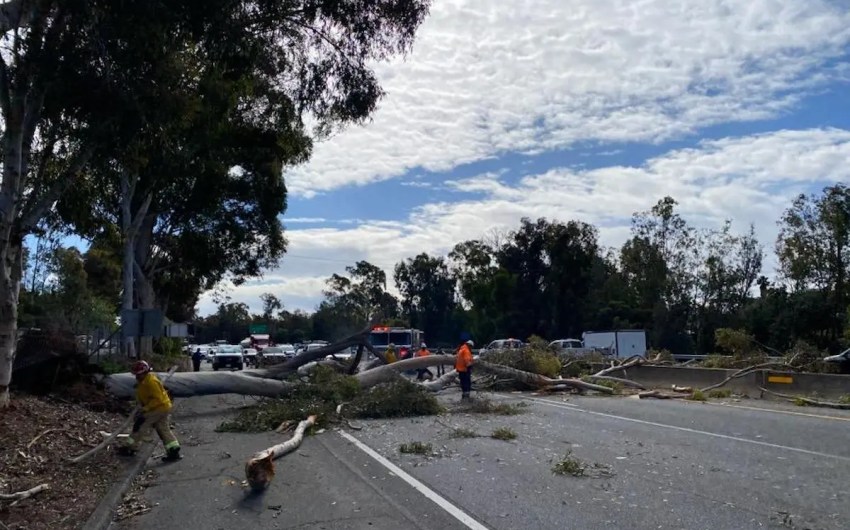


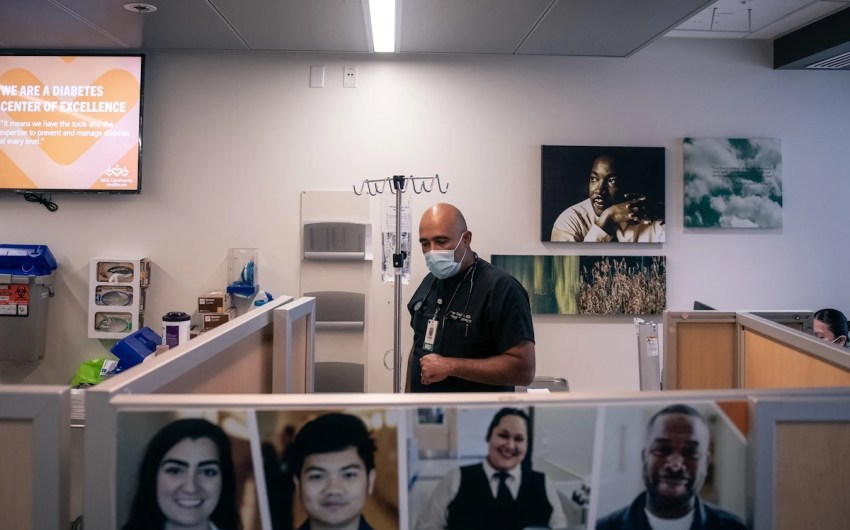
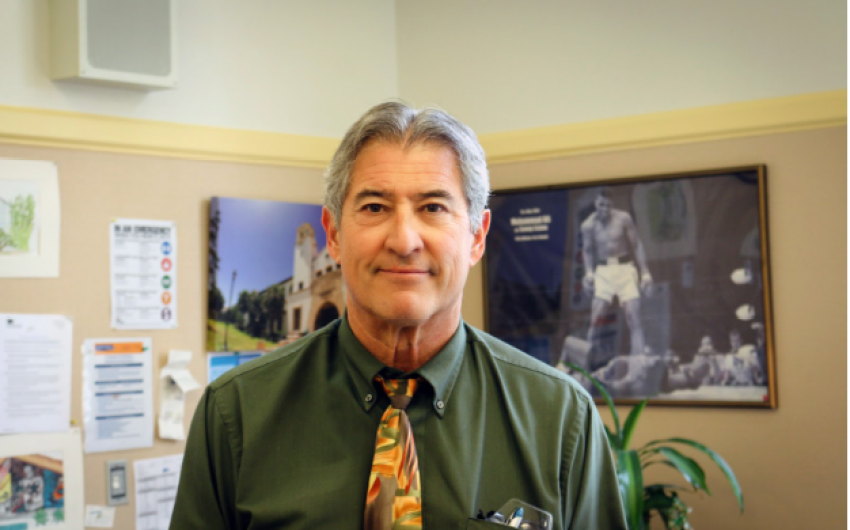





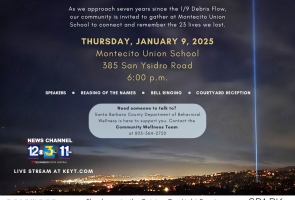
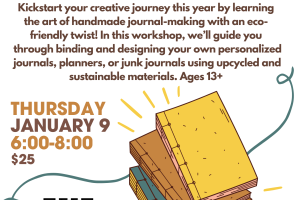
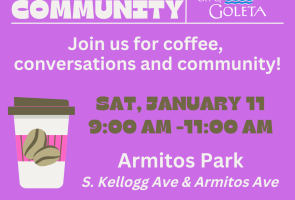
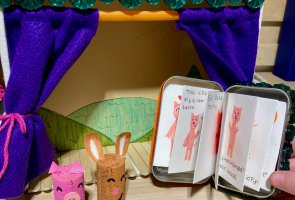




You must be logged in to post a comment.